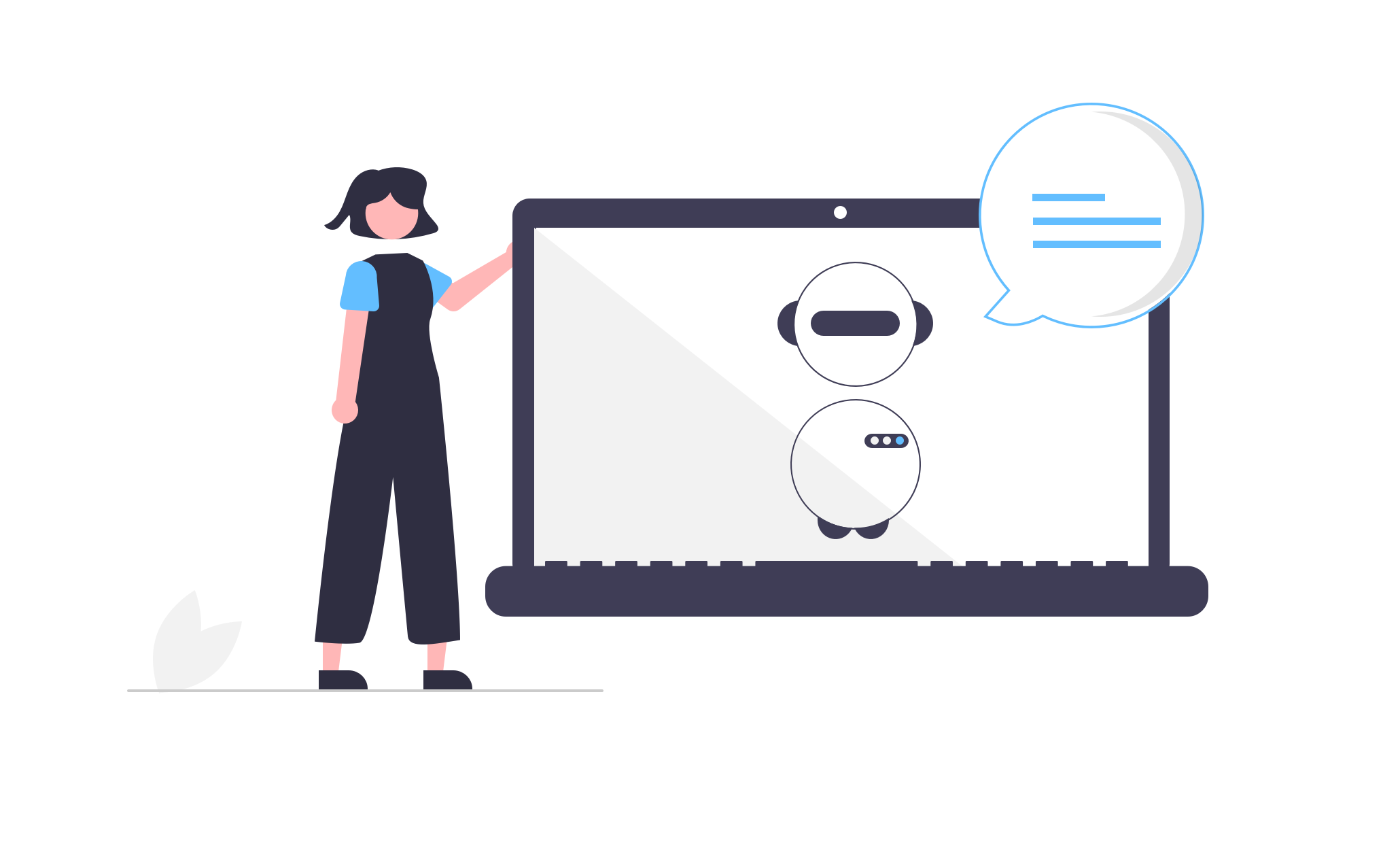
With recent technological advancements in chatbots and artificial intelligence (AI), neuro-linguistic programming, machine learning, internet of things (IoT) and web speech APIs, it is now possible to streamline interactions between computer and human languages more effectively. Everyday practically we see a Google Home or Alexa add on social media and on television, and this widens our vision about its application. So let’s have a glimpse on it.
A brief about chatbots
A chatbot is a service that people interact with via a chat interface. You can ask questions using your voice or by typing in the same way you would ask a person. The chatbot will usually respond in a conversational style, and it may carry out actions in response to your conversation (for example, order something for you). It often runs inside a popular messaging application, such as Facebook Messenger, Slack, or SMS. It answers your question, rather than directing you to a website.
Can the applications be replaced with Chatbots ?
To the end user, it may appear that systems of Chatbots like Alexa have replaced software applications (apps) when we ask them to book meetings in our calendars and purchase train tickets for us. In reality, they will encapsulate the apps and sit on top of them. While we may see fewer app icons on our smartphones, we will still need apps in the background for fulfilment and as data repositories.
Why should we discuss about chatbots ?
Eventually, the goal of a futuristic chatbot is to be able to interact with users as a human does. As the saying goes, “the best interface is no interface.” Voice chat is trending with the introduction of smart speakers like Amazon Echo, Google Home, Apple HomePod, etc.
How chatbots can help Small/Medium businesses ?
Bots are a glimpse into the future of business, and they have powerful implications on the business ecosystem. They have several advantages:
- 24×7 availability – A bot exists digitally unlike a human being, and can thus be pressed into service continuously without any interference.
- Highly Customisable – Bots are capable of carrying out a wide array of tasks because of their inherent flexibility.
- Affordable and Powerful – In the current scenario, chatbots can be developed for a small amount. Many options already exist, with the most popular being Facebook’s Messenger bot.
- Saves Resources – Employing a chatbot to handle basic customer interactions can free up valuable human resources without a decline in productivity.
Types of Chatbots –
- One operates based on a set of rules. It can only respond to very specific commands. If you, as the user don’t use the right command or words, the chatbot doesn’t know what you mean.
- On the other hand the other type uses machine learning and artificial intelligence to provide the best response. We’ll call these AI-powered chatbots.The AI aspect in a chatbot is based on machine learning. It is known as Natural Language Processing; it has the proficiency to understand a conversation and mimic human speech. An artificial intelligence (AI) agent in a chatbot achieves the goal through the ‘sense-think-act’ cycle.
How Chatbots can Revitalize Customer Engagement for SME’s?
Broadly Chatbots powered with AI can be used for two purposes:
- For Enterprise – Today’s chatbots are powerful personal assistants. They can call an Cab, place a lunch order, make a hotel reservation, order office supplies when you get low and even help manage your calendar. Let’s face it, just scheduling a single meeting can take 15 minutes or more and when you add up how many meetings you schedule, it’s a significant time commitment for a small business.
- For Consumers – Chatbots provide better service to users. Mainly in these following ways:
- Quick Response time – Compared to a human being, a smart computer program will answer queries much quicker. This, coupled with an AI chatbot’s machine learning and multi-tasking abilities make it a highly efficient virtual assistant that can revolutionise customer interaction metrics.
- Improved Conversions – Chatbots can study past search data and offer more personalised shopping options via retargeting. The AI is constantly learning, and it can pull up multiple options that will be more appealing to the user based on their search history and captured data points. This can lead to increased conversions for you in the long term.
How does Chatbots improve ROI?
Some instance where bots have worked out really well and undoubtedly have cleared the points regarding ROI as they turned out to be a boon in the industry.
- Chatbots in Finance Industry- Chatbots found their way into the Finance industry as a virtual assistant within Mobile Banking Apps. Bots act as a platform were customers can make the payment of Bills, and transfer and deposit funds. According to a survey done by Abi AI, one of the top most IT firm could save 360,000 hours of manpower by deploying bots which helped them analyse complex legal contracts faster than a human could do.
- Chatbots in Restaurants and Retail Industry- The idea of introducing chatbots in restaurant and the retail industry proved to be a smart one, as it has been helping famous food chains in reducing the order time of the customers considerably. Bots also help in saving several employees working hours as well, which in turn made them more efficient.





